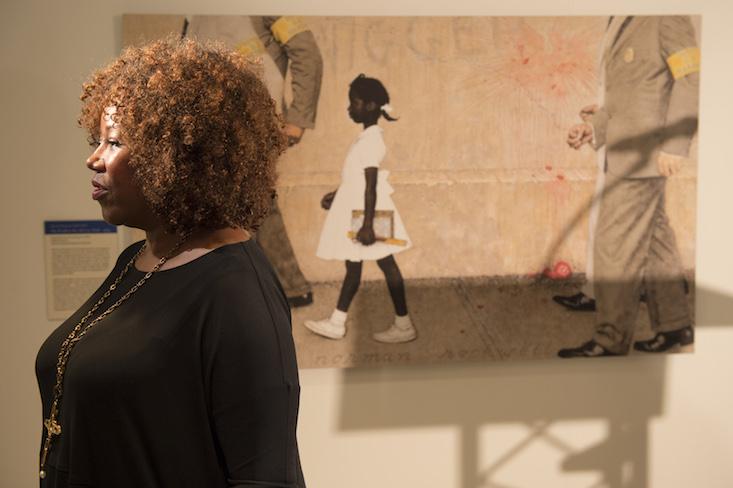The idea that motion pictures can be works of art has been around since the 1920s, and it hasn’t really been disputed since. It’s easy to see why—cinema shares characteristics with theater in terms of acting, direction, music, set design, narrative, and so on. Now we have whole academic departments dedicated to film appreciation, to understanding the emotional and intellectual responses—deep feelings of awe and reverence, among others—that movies can elicit.
But video games aren’t assumed to be as artistic as cinema or theater, if it all. In 2010, for instance, the late film critic Roger Ebert wrote an essay titled, “Video Games Can Never Be Art.” But with the increasing sophistication, and variety, of video games today, it’s becoming more and more clear that they are forms of art; or, at least, they evoke many of the same intellectual and emotional responses that artworks do. What’s more, creating large-scale titles is like creating big-budget films or operas, since they require huge teams of people. An enormous amount of the cost of a big-budget video game is paid to people the industry classifies as “artists.” (When their jobs have such titles as set and lighting design, music composition and performance, acting, animating, and painting, what else should we call them?)
There have been many arguments against views like Ebert’s, and I won’t rehash them here. But perhaps it’s not enough to say, as the philosopher Aaron Smuts does, that video games are on equal artistic footing with any other so-called art. It might be that video games can actually do more as art than other forms.
I’m talking about guilt.
Several people told me they felt guilty for subjecting game characters to violence.
One of the primary differences between video games and other art forms is that, in games, the player helps decide what happens. Controlling a character in the game’s narrative can create emotional responses impossible—or, at least, extremely rare—in other art forms. In a 2006 study, for example, researchers interviewed what they termed “heavy users of first-person shooters,” and found that players could readily recall feeling guilt, or at least moral concern. One player noted that, sometimes, his enemies would writhe on the ground for a while, rather than die immediately: “That reaches a limit,” he said.
It’s true, you can feel guilty for watching a trashy movie; but that’s the same kind of guilt you might get for drinking too much—a feeling that you should have been doing something else. You might have felt this after playing video games too long, perhaps at the cost of other things in your life. But this isn’t the kind of guilt I’m talking about. It’s not an artistic response.

Closer is Norman Rockwell’s painting The Problem We All Live With, which can make people feel guilty for their own complacency or association with the racism of the American people. But video games can make one feel a raw guilt for something only happening in the artwork itself. Because you are sometimes making moral choices in many of them, and the game shows you the consequences of those choices, game designers can make players reflect on the moral outcome of their decisions in a way that’s difficult or impossible with other art forms.
“I didn’t want to have to look the character in the eye later in the game or have the other characters know I mistreated him/her.”
I put the question of which games made you feel guilty to my social media friend circle, and got similar answers. One told me he couldn’t play a dark side character in a Star Wars game. Another said that playing all-out evil was tolerable—perhaps because of how cartoonish it seems—but being “believably” evil in a game was guilt-inducing. In the Grand Theft Auto series, for example, players are required to do bad things to make progress in the game, and many people feel guilty about it. Even though the plots in Grand Theft Auto—casino heists and mob hits, for example—resemble plots of television shows and movies, watching Tony Soprano do something evil does not make us feel guilty. But making an avatar do those same things in a virtual environment can. Real-life aggression, another 2006 study showed, stimulates the same brain activity as in-game aggression: Maybe we’re feeling guilty after acting violently in-game for the same reason we may feel guilty after acting violently in life.
Several people told me they felt guilty for subjecting game characters to violence. Many people don’t mind killing monsters, but not animals or people: “For the record, I have no problem decimating hordes of invading robots or aliens in other games,” a friend said. “I guess I still have some things to work out.” The sentiment may be widespread. GamesRader+ not long ago ran the headline, “Games that make you feel guilty for doing as you’re told.” The flip side of guilt appears, too—one woman mentioned that she felt “amazingly good” when she aided random players on World of Warcraft.
Some of my friends reported feeling guilty for not caring for characters they perceived to be their responsibility. One said, for example, that he felt guilty when he didn’t properly care for his cat in the game Nethack, and another felt guilty when her family in The Sims failed to take care of their baby, who died: “I didn’t want to have to look the character in the eye later in the game or have the other characters know I mistreated him/her.” Another mentioned Mass Effect 2, a role-playing game that has you assemble a crew for a “suicide-mission” to save all life in the galaxy. “As their leader you decide which crew members to send on which missions,” my friend said. “Choose unwisely and some of your crew members die for good. It cut through me like a knife that the balance of their lives rested in my hands.” (Some have found schadenfreude in this burden: The YouTube video, “Mass Effect 2 Bad Ending: Everyone dies,” has almost 2 million views.)
The exciting possibility is that this might make games more effective at teaching morality than other art forms. The agency one feels when controlling a character, coupled with the ability to play games repeatedly, allows the player to experience how things might have turned out differently. Some games are deliberately designed to do this. In World Without Oil, players learn about how behaviors and policies can lead to disaster in a simulated world running out of natural resources. In a similar vein, Superstruct used future crisis scenarios—politically, economically—to help people understand how our world might collapse.
If video games can trigger emotional responses to nudge us toward better behavior, perhaps it’s best for us to acknowledge their potential as works of art—not for theoretical reasons, but for practical ones. Rheta DeVries, the director of the University of Iowa’s Regent’s Center for Early Developmental Education, for instance, has written about how, through playing group games, children can enhance their moral and intellectual development.
There are still skeptics, and there will probably be many for a long time to come. (People are still debating photography’s status as art.) However, motion picture technology was invented in the 1890s. If it took 30 years for it to become acceptable as art, then perhaps video games are more or less right on schedule.
Jim Davies is an associate professor at the Institute of Cognitive Science at Carleton University in Ottawa, and author of Riveted: The Science of Why Jokes Make Us Laugh, Movies Make Us Cry, and Religion Makes Us Feel One with the Universe. His sister is novelist JD Spero.
The lead photograph is courtesy of Chansonnette via Flickr.






























